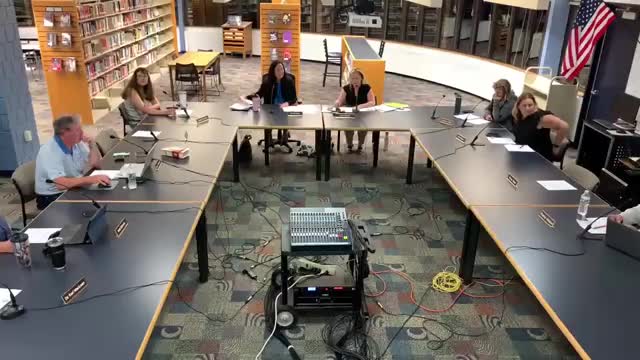Cromwell board defers action on high‑school track after board of finance tie; superintendent cites budget uncertainty
Get AI-powered insights, summaries, and transcripts
Subscribe
Summary
CROMWELL, Conn. — The Cromwell Board of Education on Oct. 7 declined to take immediate action to cover the full cost of a resurfaced high‑school track after a split vote at the town’s Board of Finance blocked a jointly funded approach.
CROMWELL, Conn. — The Cromwell Board of Education on Oct. 7 declined to take immediate action to cover the full cost of a resurfaced high‑school track after a split vote at the town’s Board of Finance blocked a jointly funded approach. The board instead asked administration for updated fiscal numbers and for the project timetable before revisiting the request.
Mayor Dimitri Addis (letter read into the record) had asked the board to consider using its fund surplus to fully fund the track after a 3‑3 vote last week at the Board of Finance failed to advance a jointly funded appropriation. The mayor’s letter said more than $170,000 would remain in the board surplus even if the board funded the track and pledged the council’s willingness to work with the schools on emergency funding if necessary.
Board history and current status
The board previously committed to a shared approach: it initially allotted $150,000 for the project and later approved increasing that contribution to $200,000. The town had recommended a $400,000 project to resurface the track; town, board of education and scribe‑board meetings had previously contemplated that the town would cover capital non‑recurring (CNR) costs to avoid carrying one‑time capital costs in the annual operating budget.
What administration reported
Superintendent Dr. Macri and staff told the board they are reluctant to use the surplus now because several uncertain, recently emerged costs could reduce the available fund balance before the district closes the fiscal year:
- Chris (director of finance) said the district must absorb unbudgeted staffing costs — for example, four paraprofessionals hired to meet student needs cost roughly $118,000 — and other early‑year expenses such as transportation contingencies and dental/DECO claims that may total roughly $12,000 plus an additional $5,000 estimate cited in discussion for a separate cost center.
- Michelle, the human resources director, warned that a Connecticut FMLA law effective Oct. 1 expands leave eligibility for non‑certified staff and increases the district’s substitute and staffing costs. Michelle provided five‑year counts for staff who took FMLA: roughly 27 (2020–21), 24 (2021–22), 28 (2022–23), 18 (2023–24), and 46 (2024–25); as of Oct. 6 this year 21 employees already had leave recorded. She said some employees qualify for both state and federal FMLA, which can extend total leave exposure and raise replacement costs.
Timing and liability concerns
Board members and staff flagged two timing pressures: the contractor list for track work is scheduled around summer construction windows, and missing the contractor’s scheduling window could delay the project another year. Claudio Bozzano and other staff stressed that resurfacing is typically a summer job and that the district needs a clear contractor timeline before finalizing funding decisions.
Board action and next steps
No vote was taken. Board members asked administration to provide updated, itemized fiscal figures — including finalized legal fees, transportation contingencies, an updated surplus calculation after recent staffing and benefit impacts, and the contractor’s drop‑dead date for summer work — at the next meeting. Several members urged the board to stand by its earlier vote (the $200,000 commitment) and to press the town council and Board of Finance for reconsideration; others recommended holding the board’s funds in reserve because of the newly disclosed budgetary uncertainty.
Why it matters
Supporters of immediate funding argued the track is a safety and asset‑preservation priority that serves students and town residents and that delaying could increase costs or lose contractor availability. Opponents noted state law and the CNR process were designed to keep large capital costs out of the annual operating budget and said the board should not unilaterally spend a surplus that could be needed to cover unanticipated special‑education placement expenses or other mandated costs.
Ending
The board deferred action. Administration will provide a more detailed accounting (including up‑to‑date legal bills and an estimate of the remaining surplus after pending expenses) and will ask the contractor for a scheduling deadline; the board scheduled follow‑up discussion at the next meeting.
